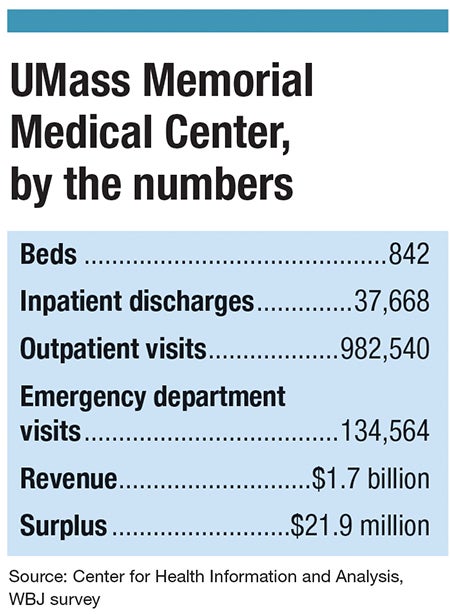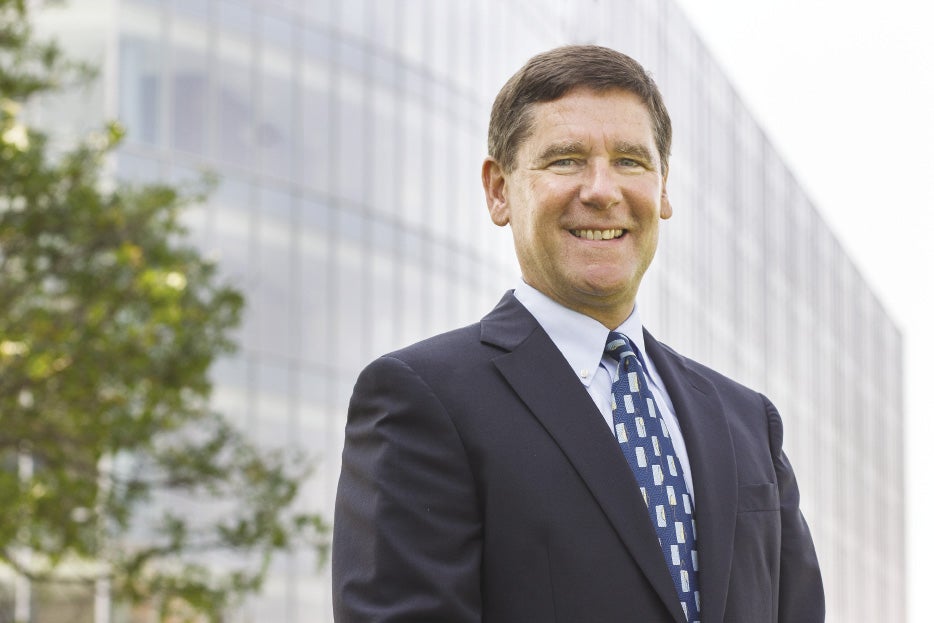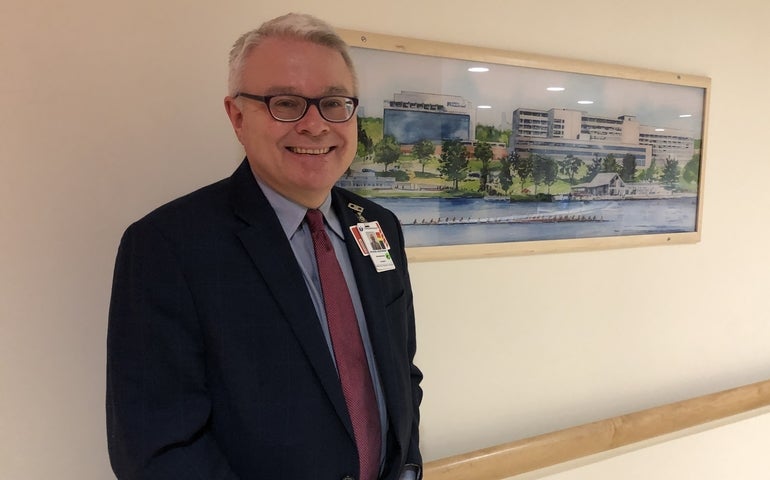Michael Gustafson followed his older brother into a career as a surgeon, working in pediatric surgery for years until making an unusual move for someone in his field: He went to business school.
Get Instant Access to This Article
Subscribe to Worcester Business Journal and get immediate access to all of our subscriber-only content and much more.
- Critical Central Massachusetts business news updated daily.
- Immediate access to all subscriber-only content on our website.
- Bi-weekly print or digital editions of our award-winning publication.
- Special bonus issues like the WBJ Book of Lists.
- Exclusive ticket prize draws for our in-person events.
Click here to purchase a paywall bypass link for this article.
Michael Gustafson followed his older brother into a career as a surgeon, working in surgery for years until making an unusual move for someone in his field: He went to business school.
Gustafson was one of the first surgeons to receive an MBA from the Harvard Business School in Boston, a path more common since then for physicians to improve their business expertise but still unlikely for a surgeon.
Today, that dual background serves Gustafson as the president of UMass Memorial Medical Center in Worcester, a role which he started one year ago this month. He can speak to the medical center’s physicians with first-hand knowledge of the work they do, while also overseeing three hospital campuses with 6,700 employees and 800 patient beds.
Gustafson, a West Virginia native, has had a low-key tenure, working, for example, to appoint a new chief nursing officer, Justin Precourt. He has filled other senior vice president positions and settled major union contracts, including for nearly 2,400 union nurses at its Memorial and University campuses and with the United Food and Commercial Workers International Union.
Other behind-the-scenes moves include appointing a clinician experience officer to help address a nagging problem among physicians: a high burnout rate from overwork or onerous paperwork that causes many to leave the industry.
Broadening his impact
Gustafson earned his medical degree from West Virginia University and performed his residency at Ohio State University before coming east for pediatric surgical research at Massachusetts General Hospital in Boston.
Gustafson became a surgeon to help children, but with time he saw the potential for an administrative role allowing him to affect medical care in a broader way.

“By being a leader in this hospital administration side, you can magnify that impact,” he said in an interview in his office on the University Campus.
Gustafson spent the better part of two decades at Brigham Health, the Boston health firm including Brigham and Women’s Hospital, Brigham and Women’s Faulkner Hospital, and Brigham and Women’s Physicians Organization.
He later served in a variety of leadership roles for Brigham, including founding and directing the company’s Center for Clinical Excellence, a system for organizing and supporting improvement initiatives. He was part of a team that developed the company’s employee performance management system.
Gustafson became Faulkner’s COO in 2011 and its president in 2015, while teaching as an assistant professor in the department of surgery at Harvard Medical School. At UMass, he succeeds Patrick Muldoon, who stepped down in January 2018.

Eric Dickson, the president and CEO of parent company UMass Memorial Health Care, cited Gustafson’s management experience and its alignment with UMass’ goals.
“We had a very competitive and diverse applicant pool, but in the final analysis the selection committee strongly believed Michael was the right candidate to lead our academic medical center,” Dickson said when Gustafson was chosen.
Plans in Worcester
At the one-year mark in Worcester, Gustafson is looking for UMass to help address other critical health needs, including the opioid epidemic, which has killed roughly 2,000 Massachusetts residents in each of the last three years.
In April, UMass Memorial Medical Group awarded $200,000 to a proposed telemedicine system to allow doctors to talk with emergency department patients through tablet-based video. The program, which Gustafson mentioned as a potential for helping improve overdose response, is meant to replicate face-to-face doctor-and-patient interactions and allow experts to evaluate those suspected of an overdose to determine the best plan for care.
Gustafson’s history with the Brigham as part of the state’s dominant hospital system – Partners HealthCare, which includes Massachusetts General Hospital, Massachusetts Eye and Ear and others – gives him a perspective to understand the challenges of keeping patients in or around Worcester when some of the nation’s best hospitals are in Boston, including for general care, children’s care and cancer treatment.
But UMass can do more to keep patients local, Gustafson said, with a plan to do so in part by better educating referring doctors on how much care can be done in Central Massachusetts. UMass is part of the Dana-Farber Cancer Care Collaborative, for example, but 80% or 90% of cancer care can be done right at UMass, he said.
Gustafson now oversees a campus network with four times as many employees as Faulkner and an operation that brings in more than $1.7 billion a year. UMass doesn’t have the prestige of the Partners name and treats a higher percentage of public-payer patients such as those on Medicaid but carries a far greater prominence in Central Massachusetts than Faulkner does with stiff competition in Boston. UMass, for instance, has the only Level 1 trauma center in Central Massachusetts and the only one with organ transplant capabilities.
Gustafson said he was attracted to UMass’ critical role in that sense, as well as the hospital’s role both with patients and in a research partnership with UMass Medical School, with which it shares the University Campus. The hospital, for instance, is working with researchers on a new gene therapy.
“We’re critical to both the medical and the research mission,” Gustafson said.

